Seoul threatens musicians with lights out
mainThe Seoul Arts Centre threatened musicians before yesterday’s concert that, in the event of any demonstration or protest in favour of ex-music director, Myung Whun Chung, they would switch the hall lights out.
(That’s what passes for free speech in ‘democratic’ South Korea.)
One musician successfully distributed a circular among the audience telling them that the players stood with their conductor.
We hear today that further resignations may be expected.
Also, that unemployed western conductors are applying for the Seoul-dead vacancy.
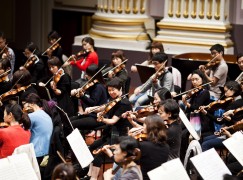

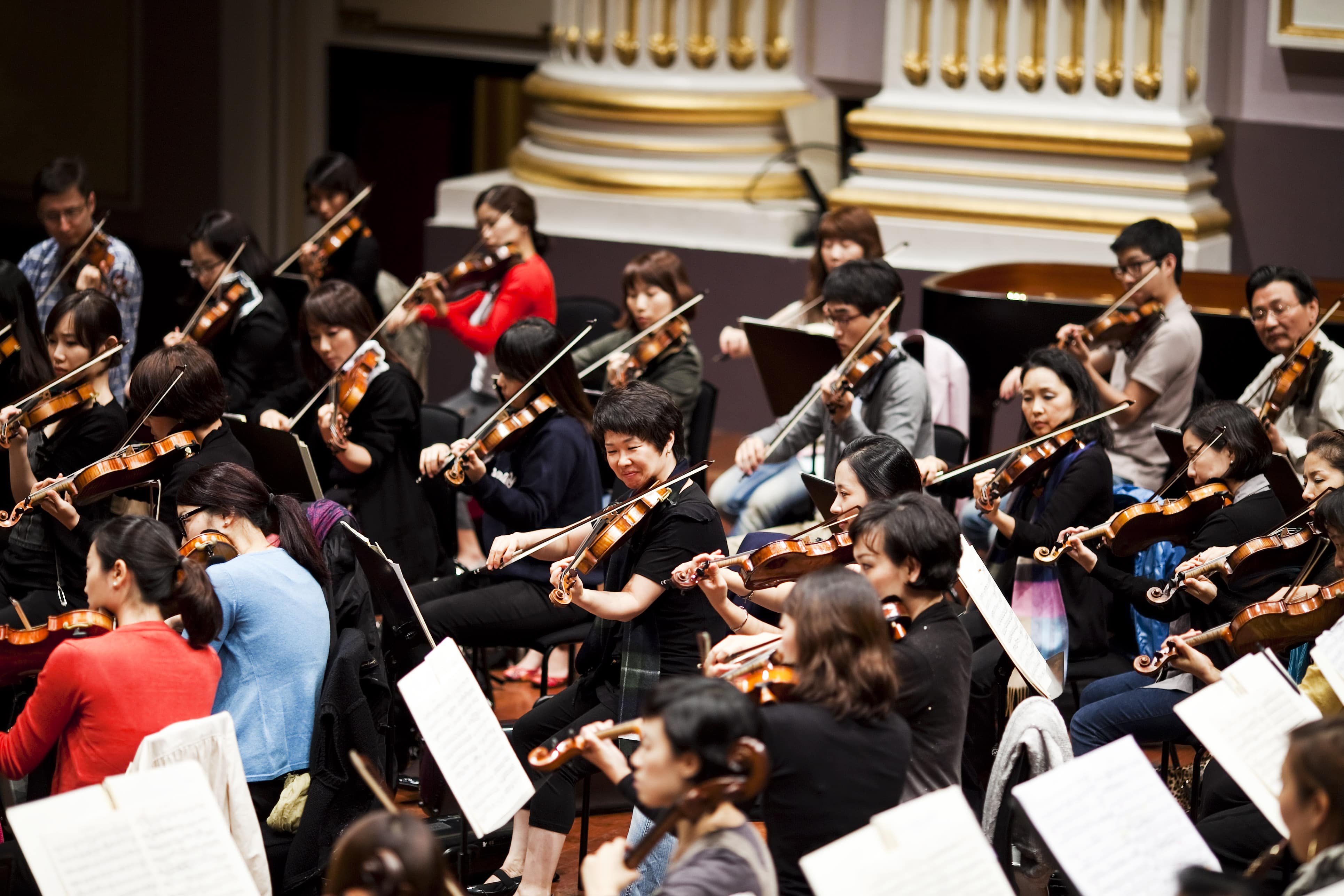

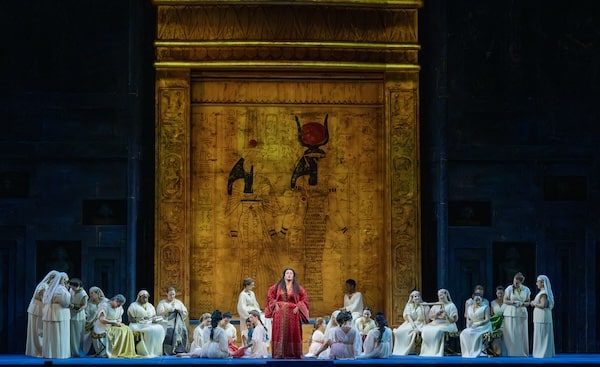
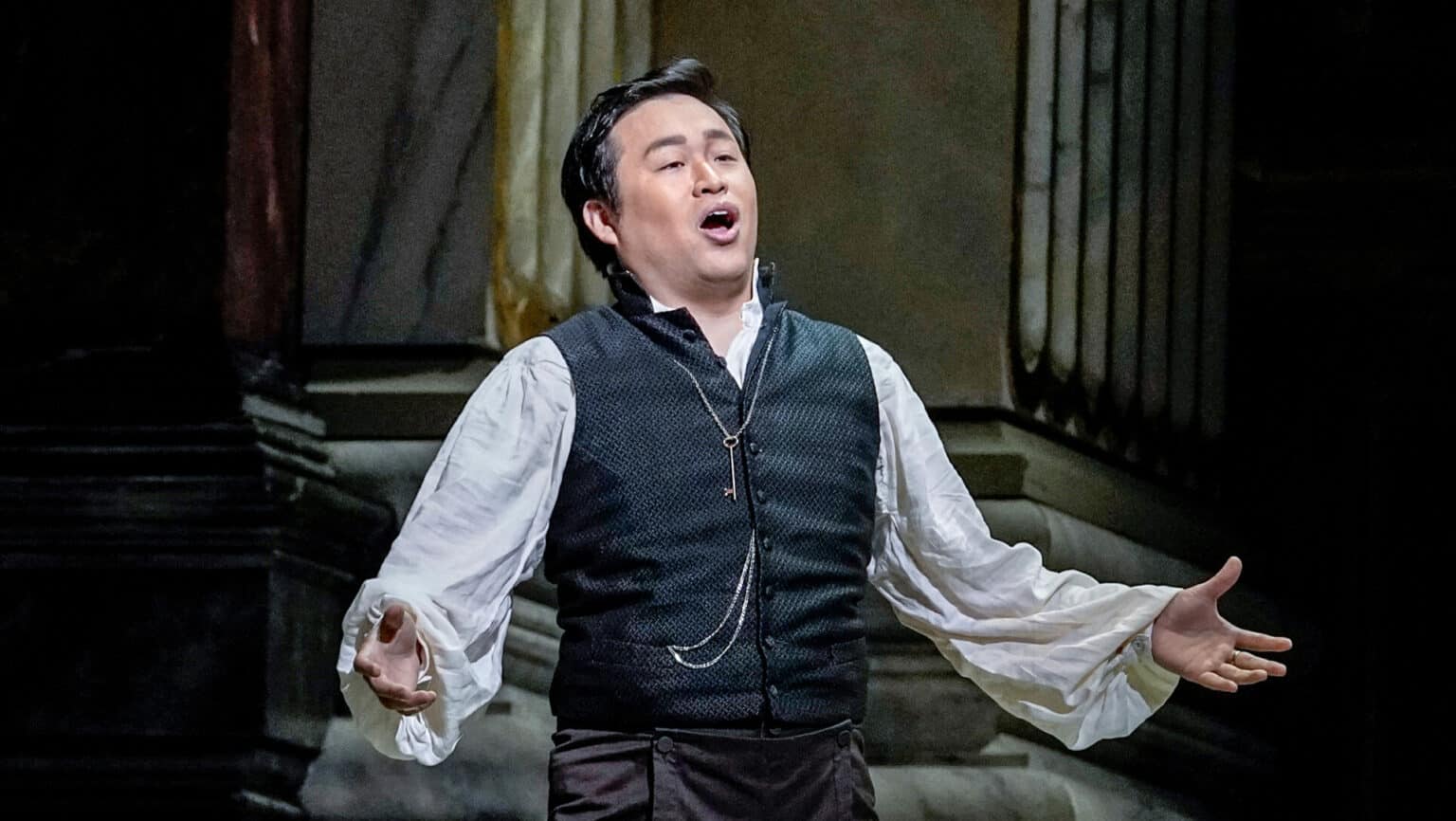
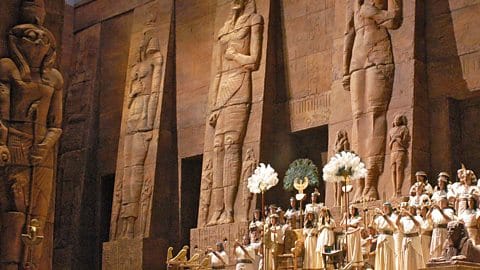
Hardly surprising. After all, the CEO of Seoul Arts Center was being appointed by the right-wing government and he is a stalwart of current president Park. He even organized a musical celebration of president Park’s father, the long-time military tyrant Chung-Hee Park (one of countless pathetic but successful attempts to whitewash dictator Park’s blood-soaked legacy in the recent years.) The Seoul Philharmonic’s hopeless and terrible ex-CEO Hyunjung Park comes from the same political camp, her father being a minister during the military dictatorship (and also remaining a powerful politician after the end of the dictatorship). Her uncle is still an active and prominent politician.
As the saying goes: you scratch my back and I’ll scratch yours. In Korea, politics, hierarchies and connections are just everything. People who think and act independently are being crushed.
Actually, there is no right-wing party in Korea at all.
A very special and unique term for this should be invented.
Otherwise, people will be confused forever.
Terminology is difficult (especially in Korea where political parties frequently change their names…)
The earlier Seoul City Mayor who appointed the CEO of Seoul Arts Center was from the Grand National Party. The current president Park Geun-Hye is from Saenuri Party (successor party of the GNP.) The earliest ancestor of both parties was the so-called ‘Democratic Republican Party’ which was being founded and led by Park Geun-Hye’s father, long-time military tyrant Park Chung-Hee.
All terminological subtleties aside, a main problem in Korea is the persistence of authoritarian power cliques who glorify the former dictator’s legacy, the most alarming thing being the strong backlash against human rights and press freedom during the last years (in particular under the reign of Park Geun-Hye.)
The name of the party should never be a problem, but what they have been doing has always been a problem.
No right wing in the whole world sells its country and its people.
That’s the point.
Korea definitely needs a brand new term.
As it says for the orchestra’s next concert:
지휘 — 미정
Conductor — to be determined
Alice in Wonderland.
That’s exactly how I’ve been feeling.
The 2 favorite national pass-times in South Korea are jealousy & revenge. So, nothing new here.
Is there anywhere else in the world with a relatively thriving classical music scene and so many youngsters being brought up to play instruments, I wonder, where one woman, or man, could effect such a seismic change with what will almost certainly result in the destruction of a very fine orchestra – and all the powers-that-be just stand around seemingly cheering? This all seems more like what goes on in North Korea than in a country to which in 2015 Freedom House (which works to defend human rights and promote democracy) awarded 2 out of 7 for each of freedom rights, civil liberties and political rights – with 1 being the highest.
The ranking would have been higher but for the various recent clampdowns resulting primarily from severe on-line criticism of President Park’s absence for a few hours during the Sewol Ferry disaster. Stung by these comments, in September the Public Prosecutor’s Office established an antidefamation cyberinvestigation team that has censored and prosecuted suspects of online defamation of the President that took place on social media. This has resulted in millions of Koreans switching to non-South Korea-based social media platforms.
President Park is increasingly looking like her dictator father and, as rightly described by Heeja Walker, his “blood-soaked legacy”. Yet I still seems extremely strange that the Chung family, once revered in the country, has been chosen for this sort of political execution.
I think it’s mostly about emotions and relationships rather than about facts and the truth.
In the past, Mr Chung said something that could make people think he favoured the so-called right-wing party (which has actually never truly been right-wing at all, in fact, many of them, including the current president, are the descendants of Japanese war criminal collaborators and the traitors to Korea before and during World War II) so people who knew about this had not been very pleased despite his great musicianship.
And when he handed his baton to Myoung-bak Lee, who is an ex-president as well as ex-mayor of Seoul and from the same side as the Amazing Miss President’s now, at the inaugural ceremony, people who supported the opposite were stunned.
Mr Chung and the orchestra had to be there because they had to, but no one could know what actually each one of them was thinking.
Anyway, it escalated negative public sentiment about him.
His enemies in the classical music world never missed the chance.
It’s undeniable that Mr Chung has had many enemies.
Some of them are those who were fired by him, who are jealous of him, who wanted a prominent position in that world, but have never got any support from him, and so on.
They speeded up dragging him down and started spreading more negative things about him by making claims about his musical abilities and personality, his family, his personal life, his salary, his music, the orchestra, the staff, literally everything and anything related to him.
It doesn’t matter whether it’s true or not.
And partial truths or facts don’t always tell the whole truth but who cares?
However, the current mayor of Seoul who is from the Left didn’t kick him out.
Instead, he tried to renew the contract with Mr Chung and amended some parts of it, which could’ve caused misunderstanding and problems.
Yes, not everyone has to follow the rules and practice in the classical music world, even if those things are common in all countries except one, so the mayor mediated and clarified it.
After that, as far as I know, Mr Chung did everything that he was told to do.
But it doesn’t matter whether he did or not, because many people want artists to be saints.
Since that time, the so-called right has found one more thing to damage the current major of Seoul by tying the two up together and Mr Chung’s enemies stirred up hatred on both sides.
It was just like that there was no land for Mr Chung to stand.
This amazing musical and political drama has finally reached its climax when another member of the cast, the ex-CEO has appeared on the scene, as you see.
Once you become a target, they will never miss you and will break every single bone of you.
Until you die?
No, even after you are dead, they will never stop.
I’ve never intended to say that Mr Chung is a saint or a perfect human being.
If, in any case, Mr Chung made a mistake or a fault, he may have to pay for it, but it seems not fair inciting people who don’t know the whole truth yet throw stones to him.
As is commonly known, ‘sainthood’ does not exist on earth. But what certainly exists and what counts is ethical integrity. As long as people long for saviors and ‘saints’, as long as they judge overhastily, irrationally and viciously about real human beings, they are prone to manipulation. And this is precisely what is happening in Korea (and not only in this scandal.)
South Korea could be doing so much better. A major problem is widespread lack of civic conscience, and, in particular, lack of courage. There is great anxiety to stand out as an individual – which is, arguably, partly because of the legacy of colonialist oppression and decades of military dictatorship, and partly because of the Confucianist tradition with its strictly hierarchical structures. Rumours, paranoia, backstabbing, opportunism and propaganda blossom. Certainly, there exist a lot of real and felt injustice in the country (the suicide rate in South Korea is the second highest in the world), which also explains why there is such a great desire to find scapegoats as safety valves for aggressions and frustrations. As for Myung-Whun Chung, he is certainly a legend, but precisely because of this there exists much envy and a desire to drag the aloof larger-than-life person through the dirt – and it works since he is an independent artist worlds away from power cliques. In Korea, political connections and subservience in front of the powers-that-be are necessary for survival which is why independent thinking can’t blossom and why utter mediocrity reigns in the musical institutions (notwithstanding the amazing and brilliant individual potential in the field of classical music!)
It is fertile ground for political manipulation and instrumentalization and that’s why a politically well-connected person with malicious intents – such as, in the Seoul Philharmonic’s case, the orchestra’s vengeful ex-CEO Hyunjung Park – is able to cause that much damage. (This instrumentalization and labelization often leads to absurd situations and weird alliances. An example: when Myung-Whun Chung was appointed by the back-then ‘right-wing’ City mayor he became a target of pathetic attacks by ‘left-wing’ polemicists. Ten years later, after ex-CEO Park had to resign due to human rights violations, she invented the successful lie that Chung and the liberal Seoul City Mayor would have conspired in order to oust her from power – what delusions of grandeur… – and Chung thus became an additional target for the ‘right-wingers’ for whom the liberal City Mayor is a thorn in the side…)
Besides sinister intrigues and jealousy, another problem exists: as pointed out earlier by Nick, a key issue in Korea is the lack of experienced international arts managers who would be willing (and able) to take responsibility. The lack of taking responsibility, however, extends beyond the manager caste. If the whole orchestra – board, management and musicians – and its considerable fanbase would have consistently and publicly supported SPO’s maltreated employees and Myung-Whun Chung, combatting the lies of Hyunjung Park and her henchmen in the media and politics from early on, this disastrous mess – which has been going on for one year – would certainly not have gone that far. This should never have been allowed to happen.
Some fascinating insights, thank you. But I have been pondering on one of your final points –
“If the whole orchestra – board, management and musicians – and its considerable fanbase would have consistently and publicly supported SPO’s maltreated employees and Myung-Whun Chung, combatting the lies of Hyunjung Park and her henchmen in the media and politics from early on, this disastrous mess – which has been going on for one year – would certainly not have gone that far”
Have you any idea why that fan base and other support did not make its voice heard with much more force? I fully understand the northern Asian square-peg-in-the-round-hole mentality. Yet, I can recall many visits to Seoul in the early- to mid-1980s when an abiding memory is of lingering tear gas used to quell very regular student demonstrations in the eastern part of the city. There was an active protest movement with two of the leaders, Kim Young-sam and Kim Dae-jung, eventually becoming President when the dictators were toppled. With so-called democracy, has the expression of dissent been stifled to a greater degree? Were the Chung supporters just too meek to mount an effective challenge? Or did they just fail to realise the strength of the support for the dreadful Ms. Park and let events run out of control?
Very good question… Very likely it was due to all three aspects you mention, and I think there is a fourth aspect, as well.
As for the first aspect, I tend to think that – after the gain of so-called democracy – people became impatient: the acquired rights were considered as a matter of course (one problem of the current Korean opposition is that it is effectively divided and unable to form behind one candidate, which is why the ruling authoritarian powers might – despite all the unhappiness and suffering and thanks also to the all-pervasive propaganda – well be elected again), people preferred to forget about the dire past and sweep persisting problems under the carpet, mere consumerism becoming a widely shared ‘religion’.
A big problem is the virtual impossibility of open rational debate.
Another big problem is oblivion: in gallup polls, the long-time tyrant Chung-Hee Park, the current president’s father, was chosen by a clear majority as the best Korean president of all times, despite his horrendous human rights record and despite the fact that he was a collaborator during the Japanese occupation – and that was before the recent introduction of state-controlled history textbooks …
As for the second aspect you mention: it is correct that the voices of the Myung Whun Chung&Seoul Phil supporters have been meek. Again, this is a common problem in the society. Hardly anyone dares to speak out or to take responsibility, out of fear of being punished.
(It should also be added that, during this scandal, the ex-CEO Hyunjung Park had sued not only the maltreated orchestra employees who wrote the petition against her, but also employees of the Seoul Metropolitan Government and critical journalists.)
As for the third aspect you mention, I think that the power, tenacity and success of ex-CEO Park’s manipulations came as a surprise to many and that they failed to act in time.
Besides, since the orchestra and Chung had been attacked by ‘left-wingers’ and ‘right-wingers’ alike, there was no political camp that would have wholeheartedly supported them (and unanimous political backing from at least one camp seems to be a precondition for success in Korea.)
There is also a fourth aspect which should not be underestimated. The ex-CEO had installed servile new personnel in parts of the orchestra’s board and management (which was not too difficult since she had, by means of harassment, effectively forced 13 employees to quit), thus establishing a regime of fear.
The last presidential election was not fair at all.
It’s not an assumption, but a fact and the truth.
For example, Sehoon Won, the former chief of the NIS which is like the CIA, was sentenced to 3 years’ imprisonment on the charge of an intervention in the election, including violation of the election law.
It’s just the tip of a huge iceberg.
They are not controlling the nation with guns and iron bars any longer, or more precisely, they don’t need those things anymore, but they have other things to do so.
However, I agree that all the opposition parties now are completely useless.
I hope every conductor approached to lead the SPO in future reads very carefully all the comments that have been made in the various threads in Slipped Disc about the orchestra and the frightful Ms. Park. Presumably her dark shadow will hang over the orchestra for quite some time to come, with the added possibility that she might even take over the CEO reins again.
The real sadness here is for the musicians. They are clearly an ensemble of very fine instrumentalists. They are too good for the other orchestras in Korea. The younger ones should easily find good positions in overseas orchestras, although for most that will mean moving away from Asia where there are not many of a similar standard. Those with families and working spouses will no doubt find such a move difficult. What a dreadful mess!